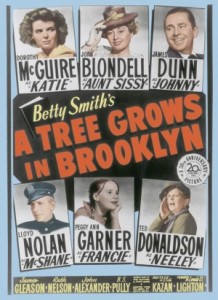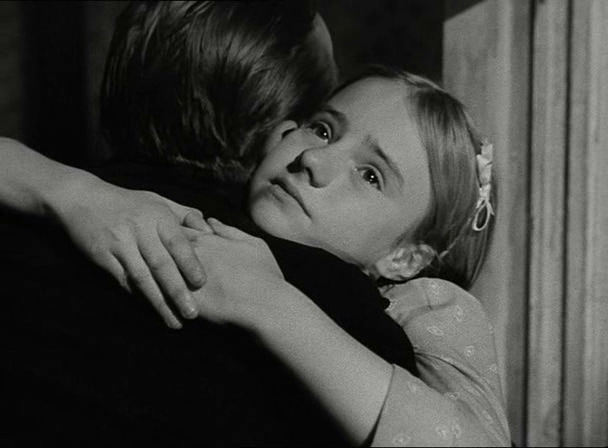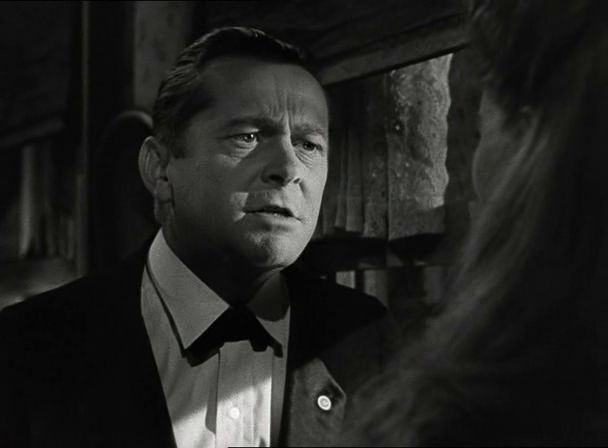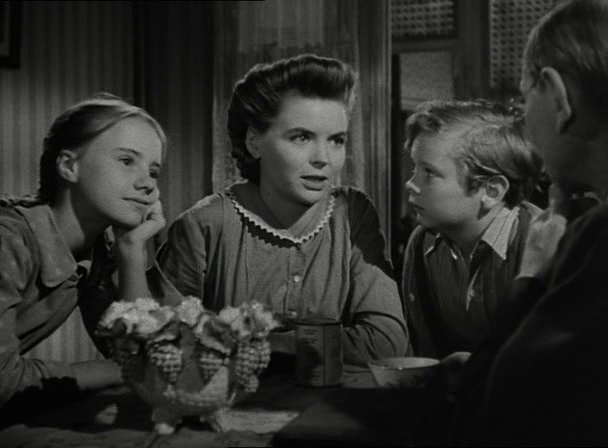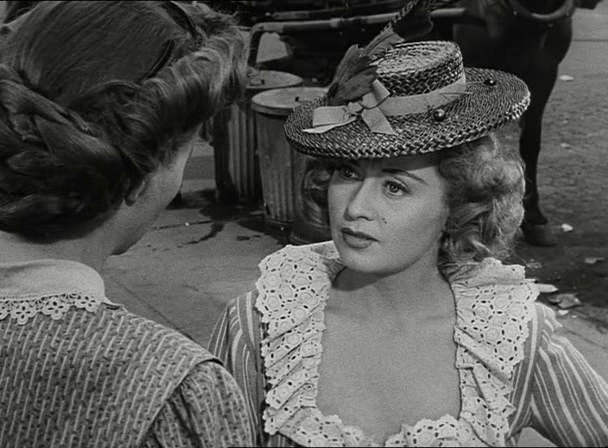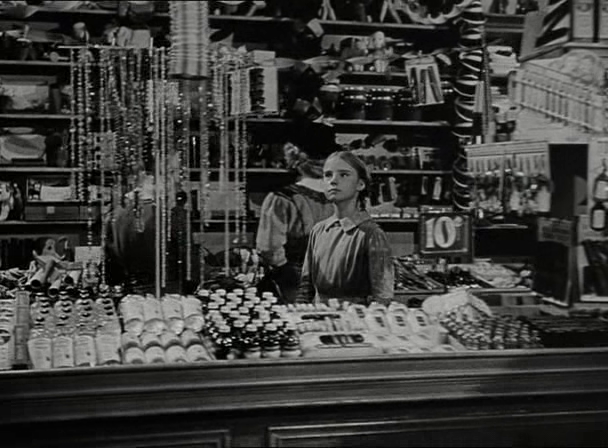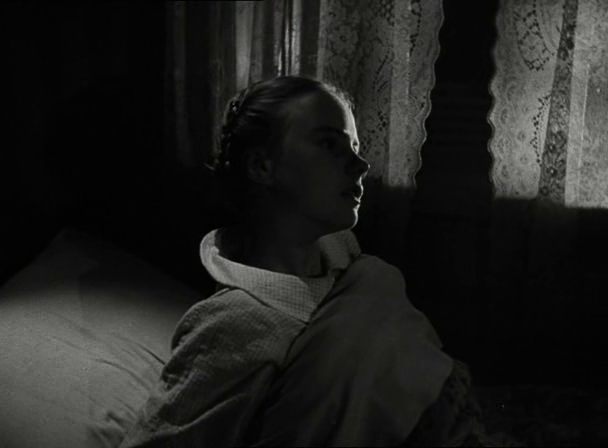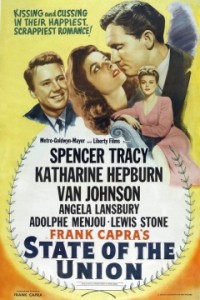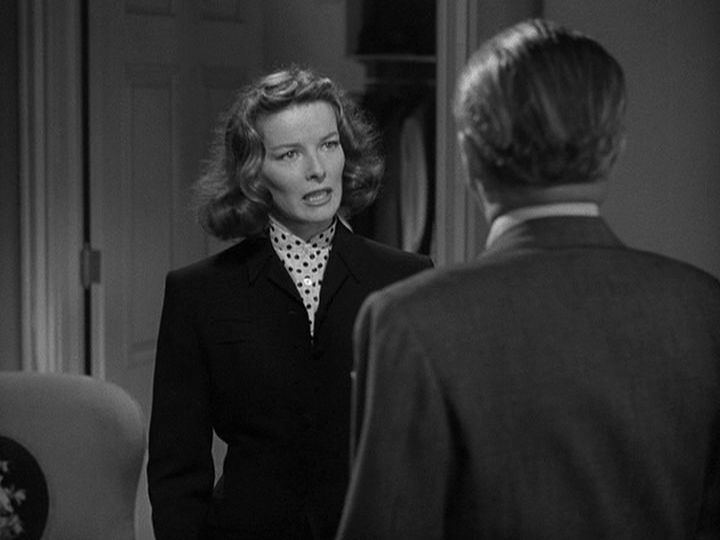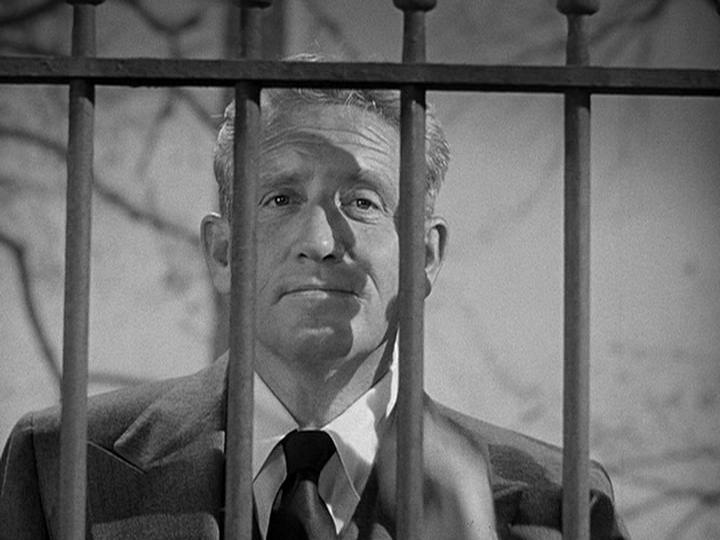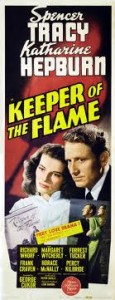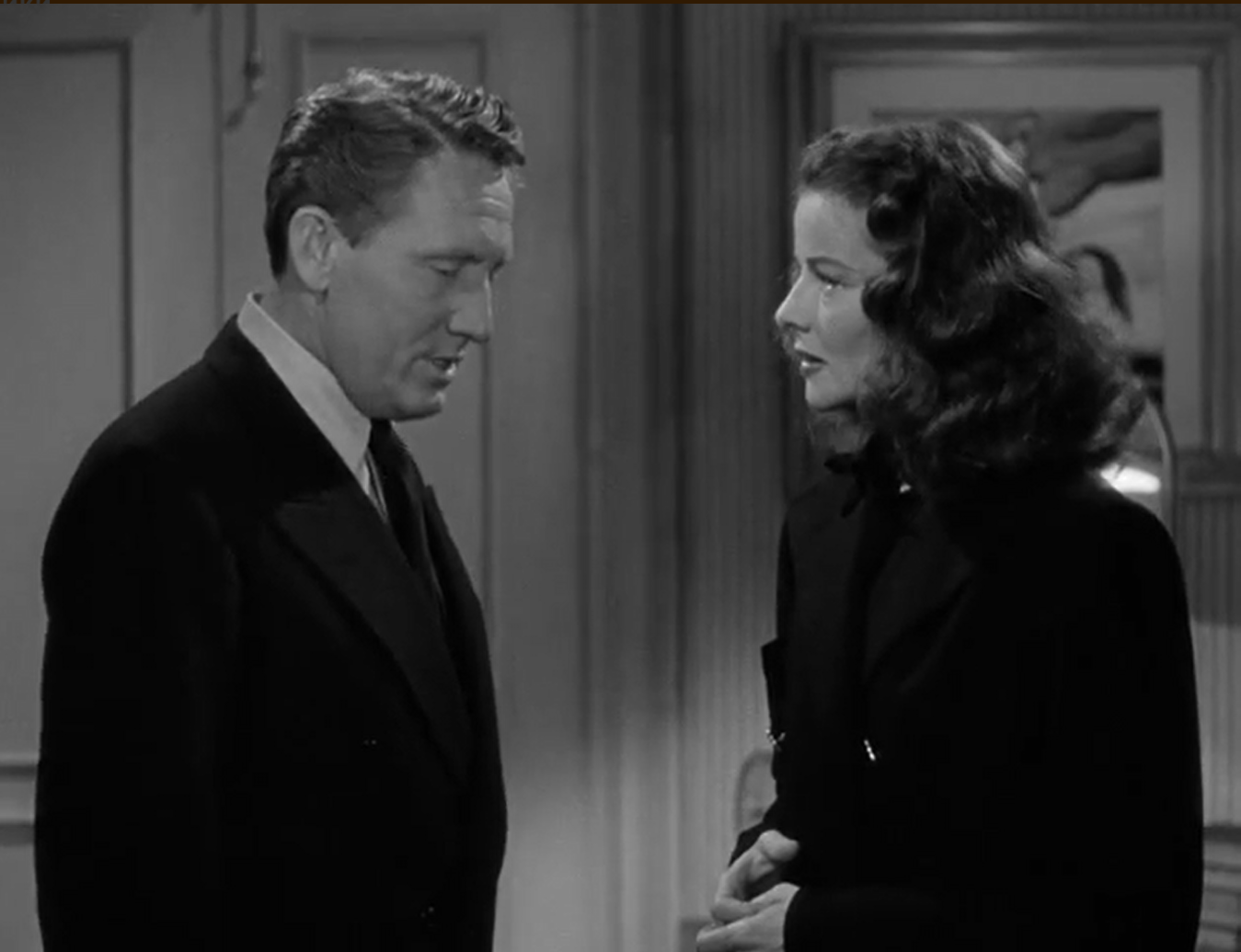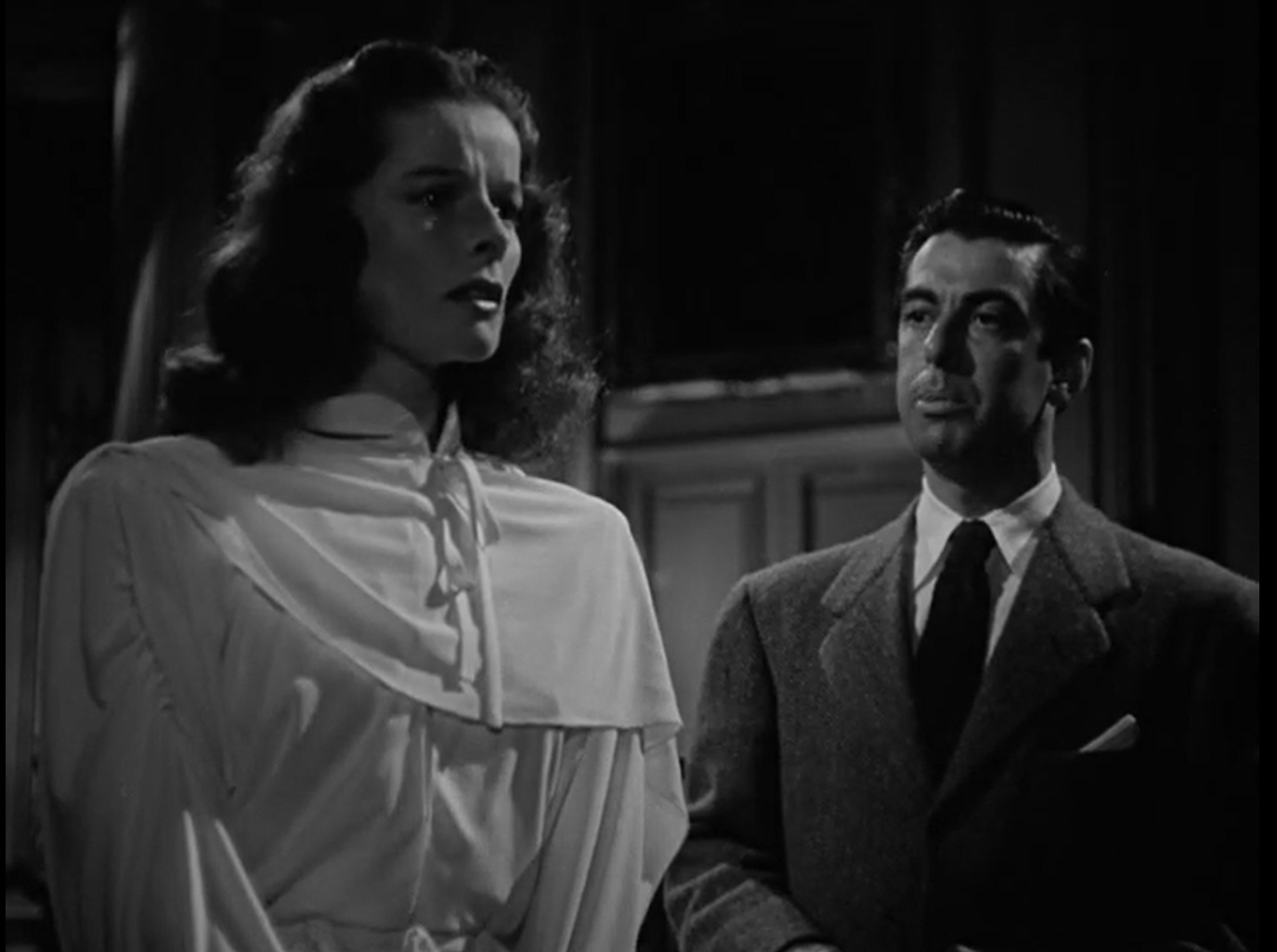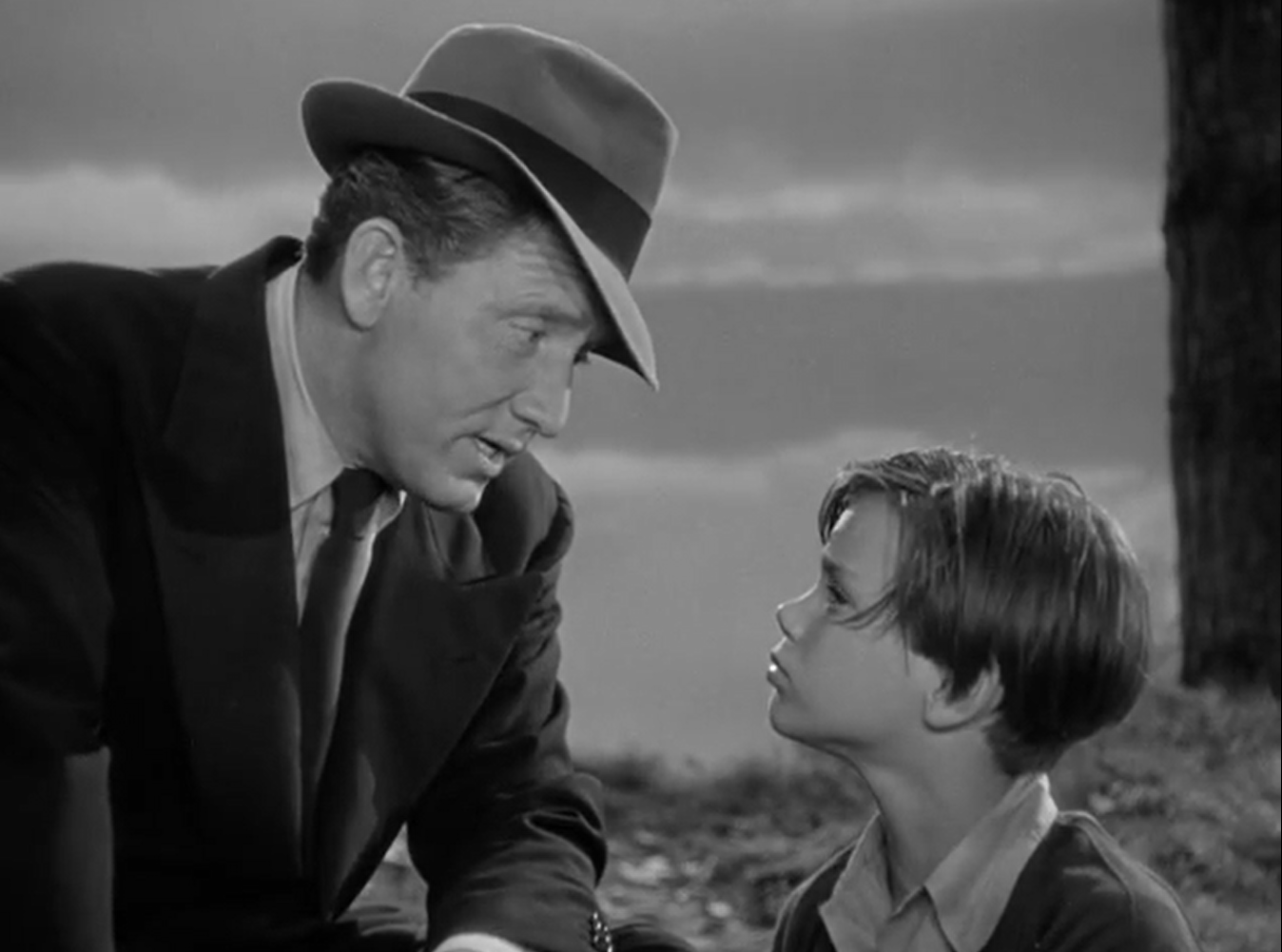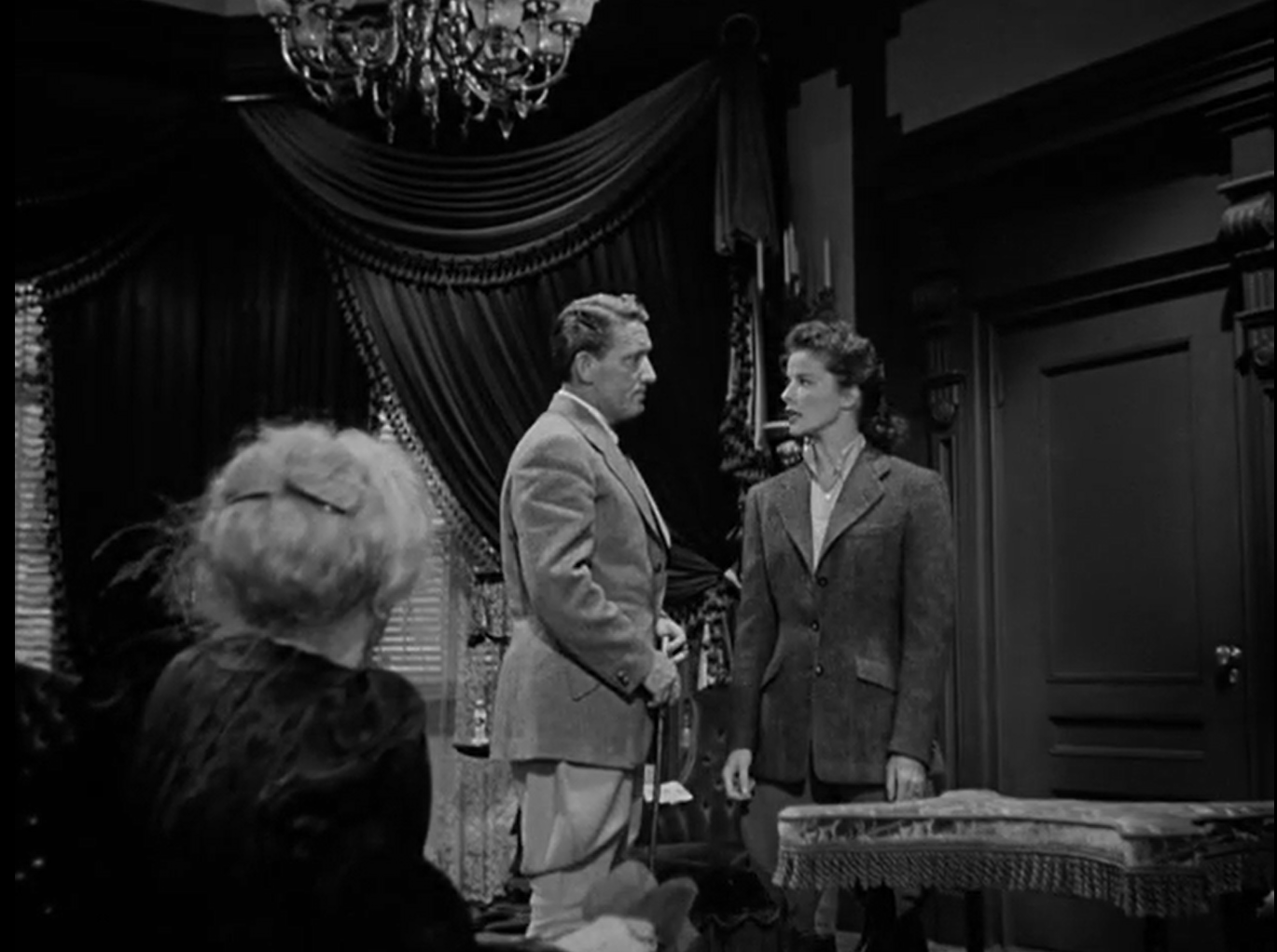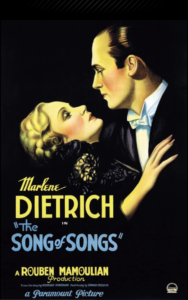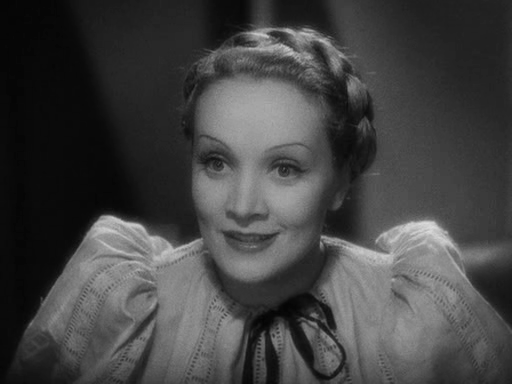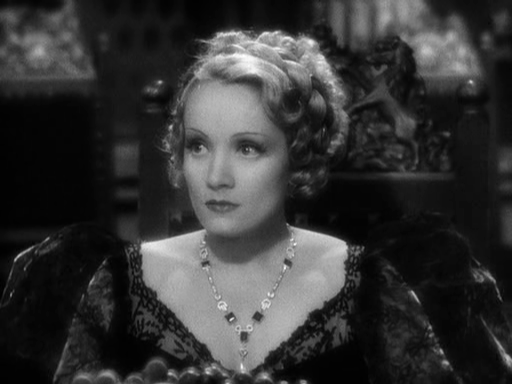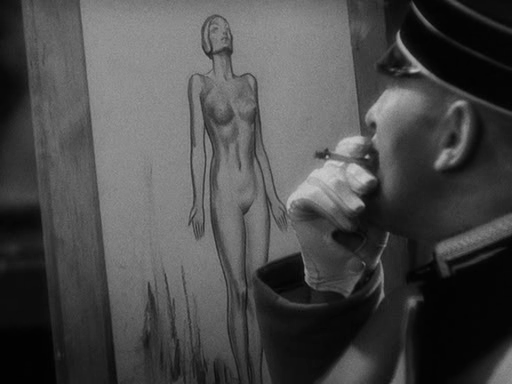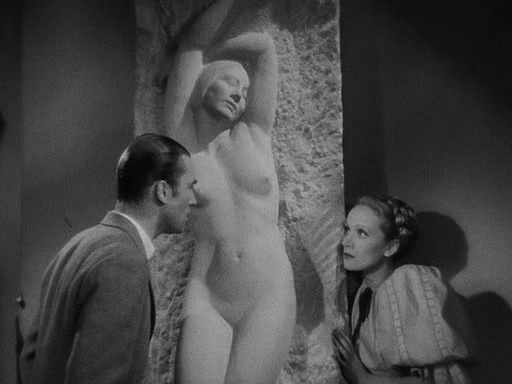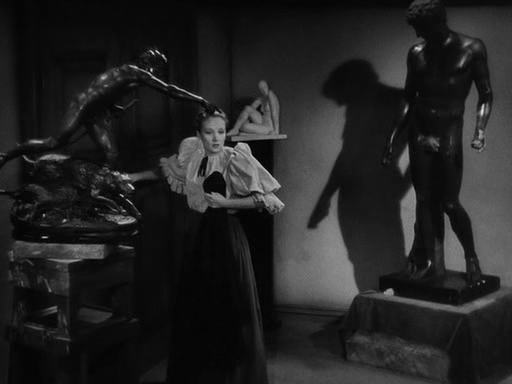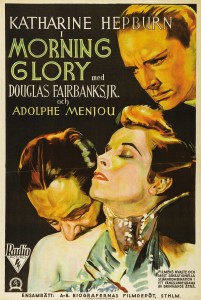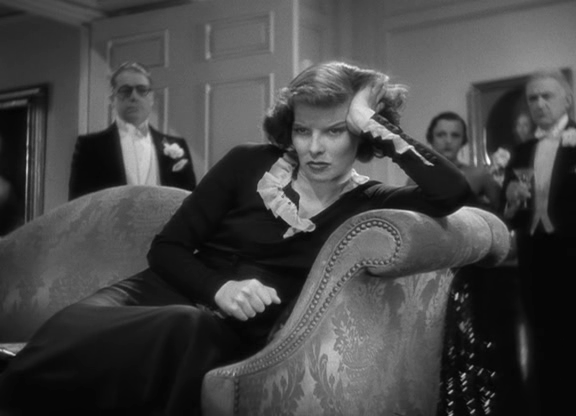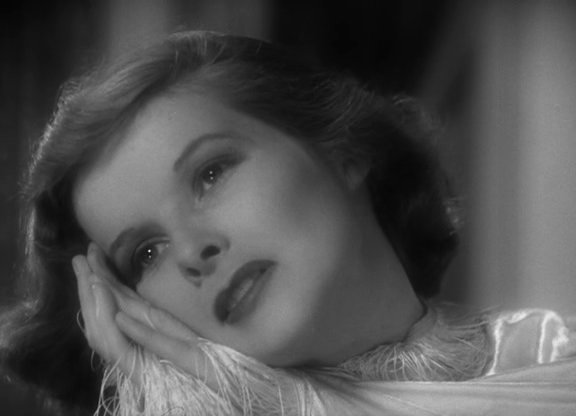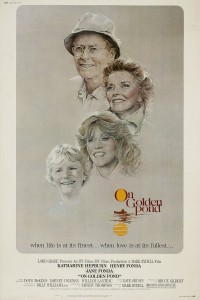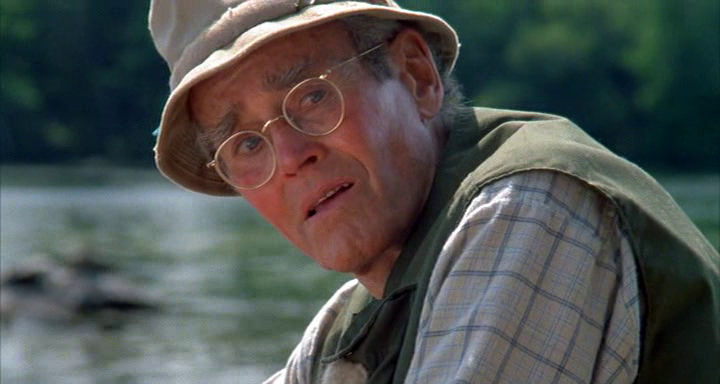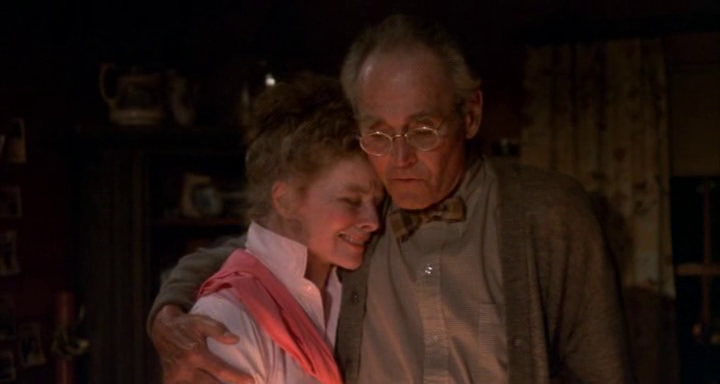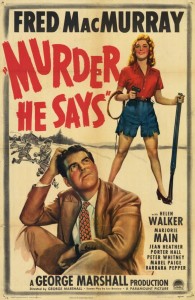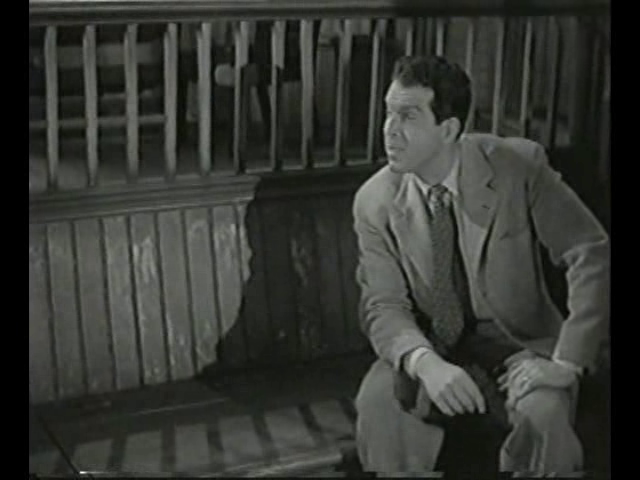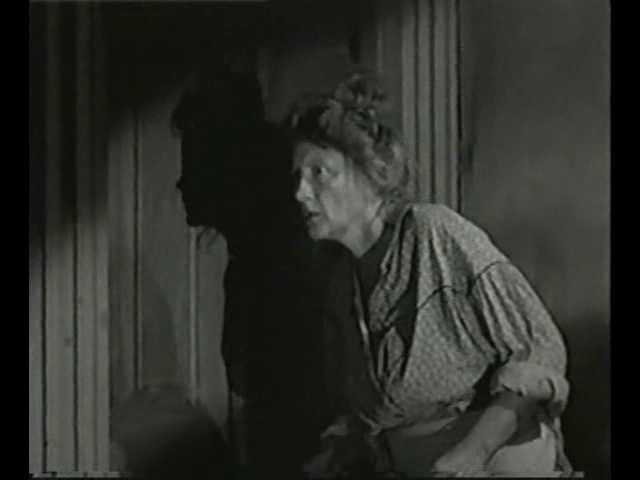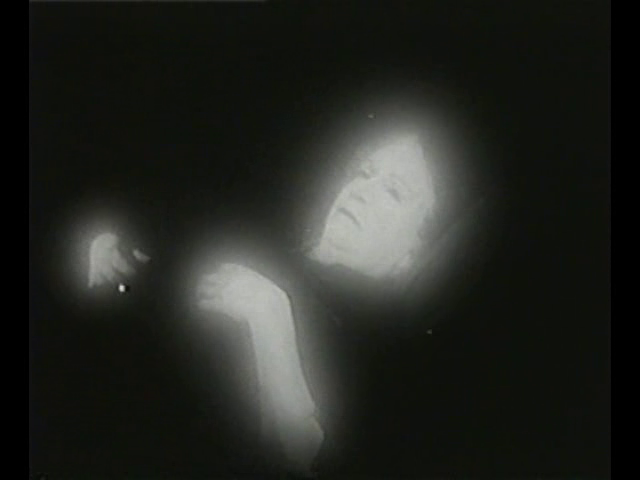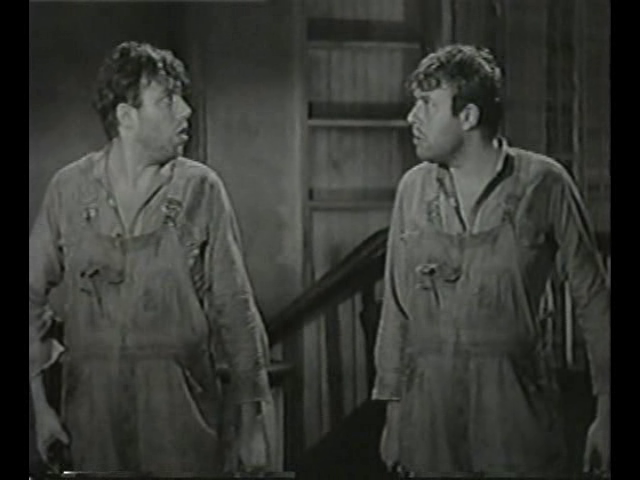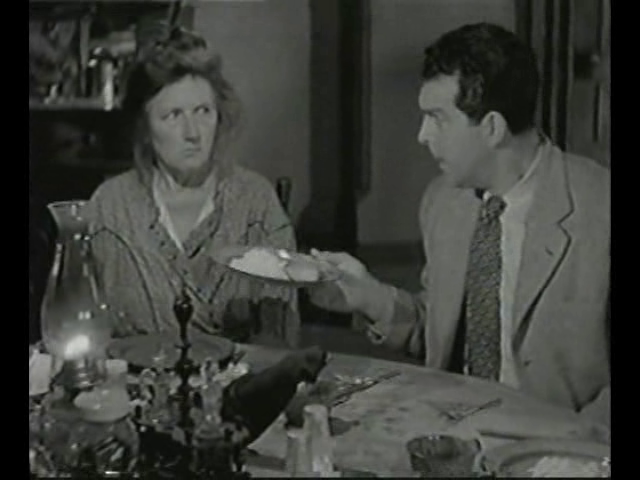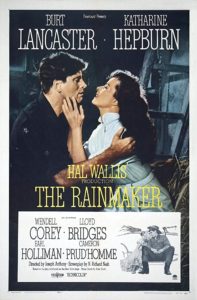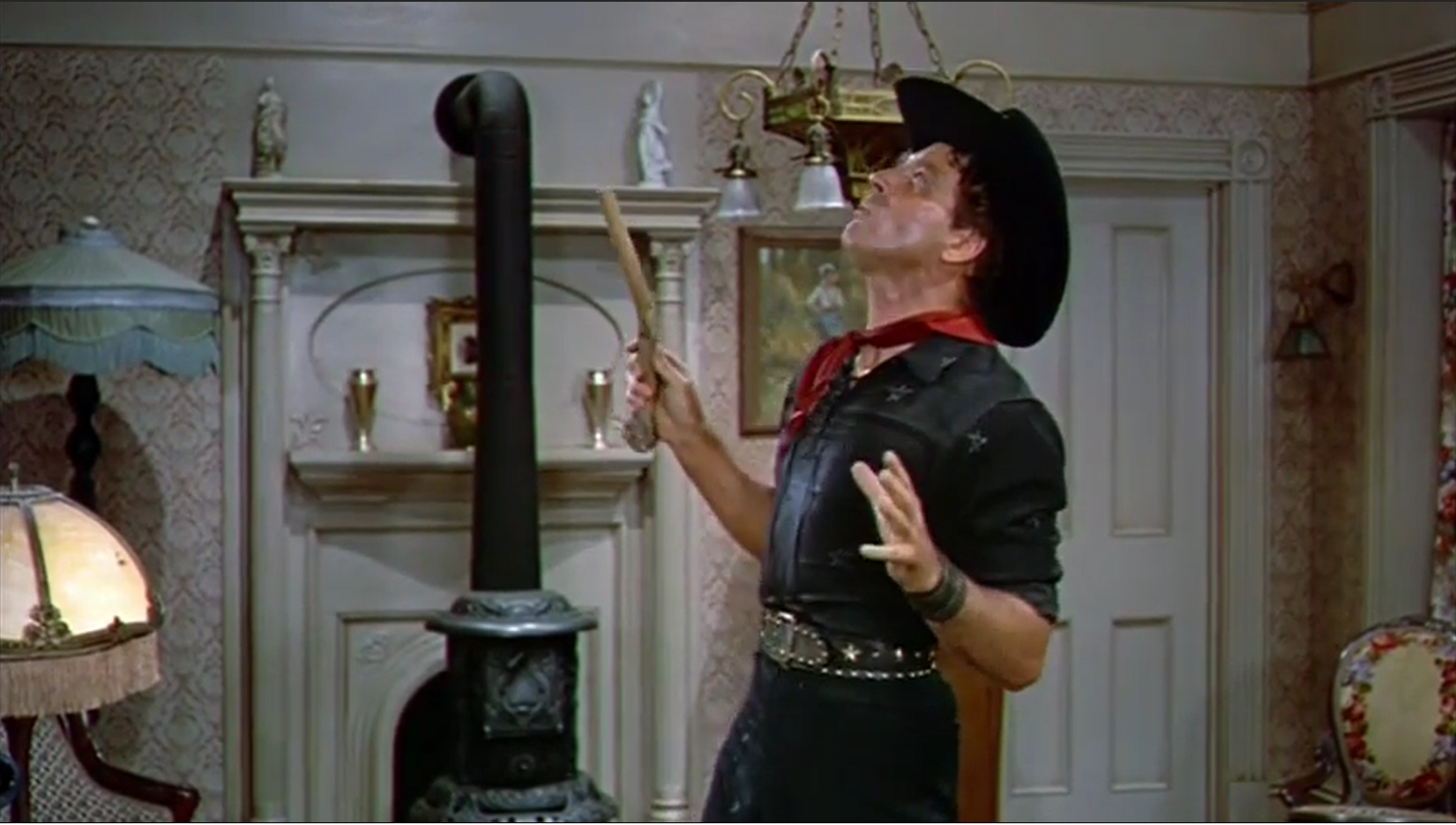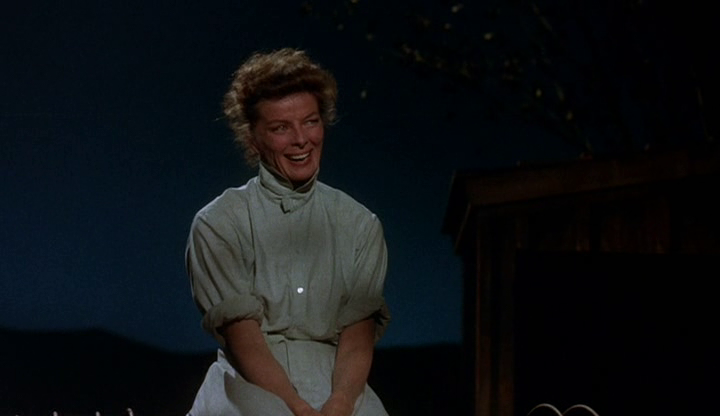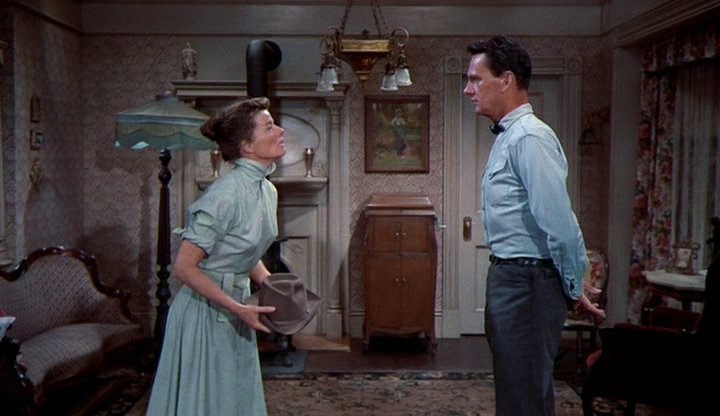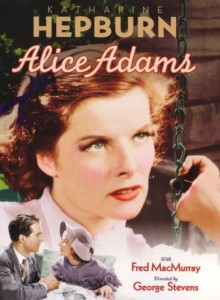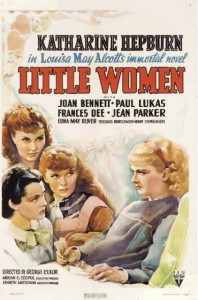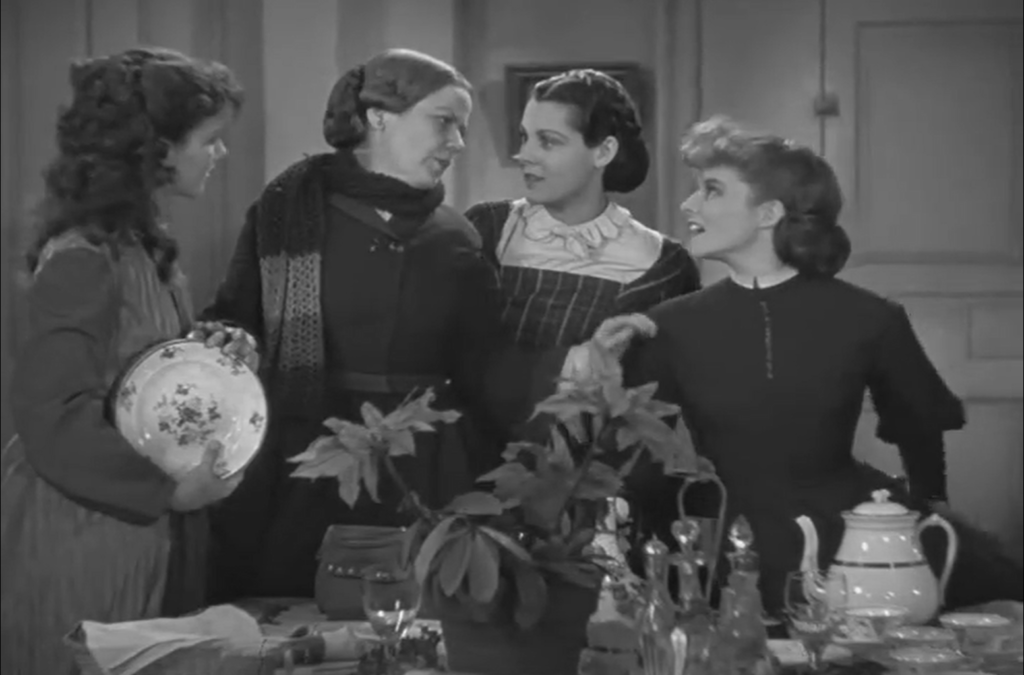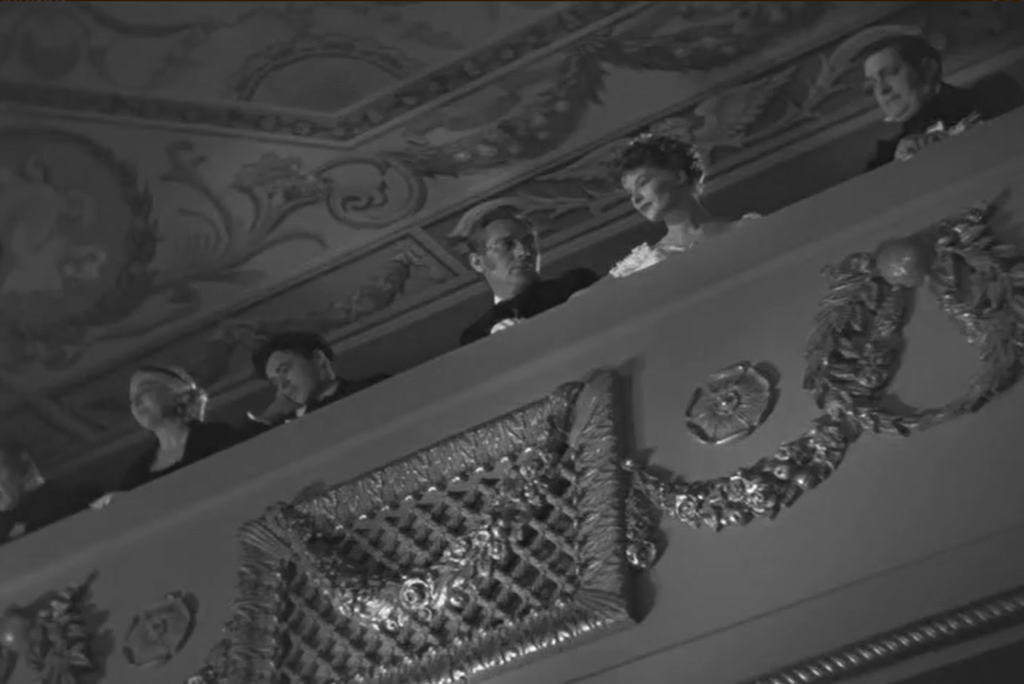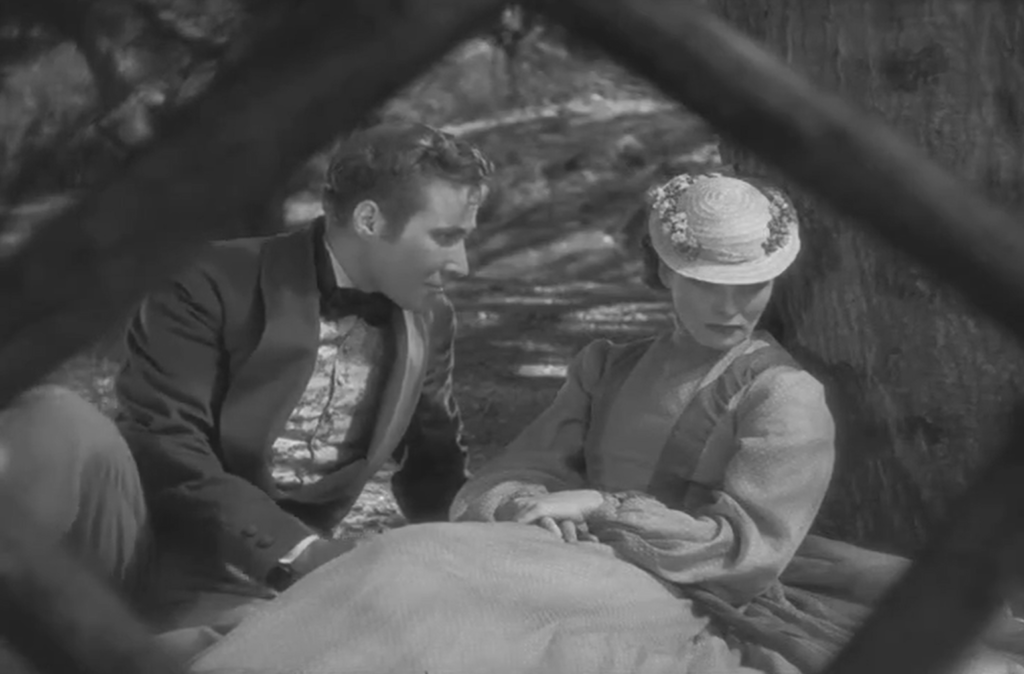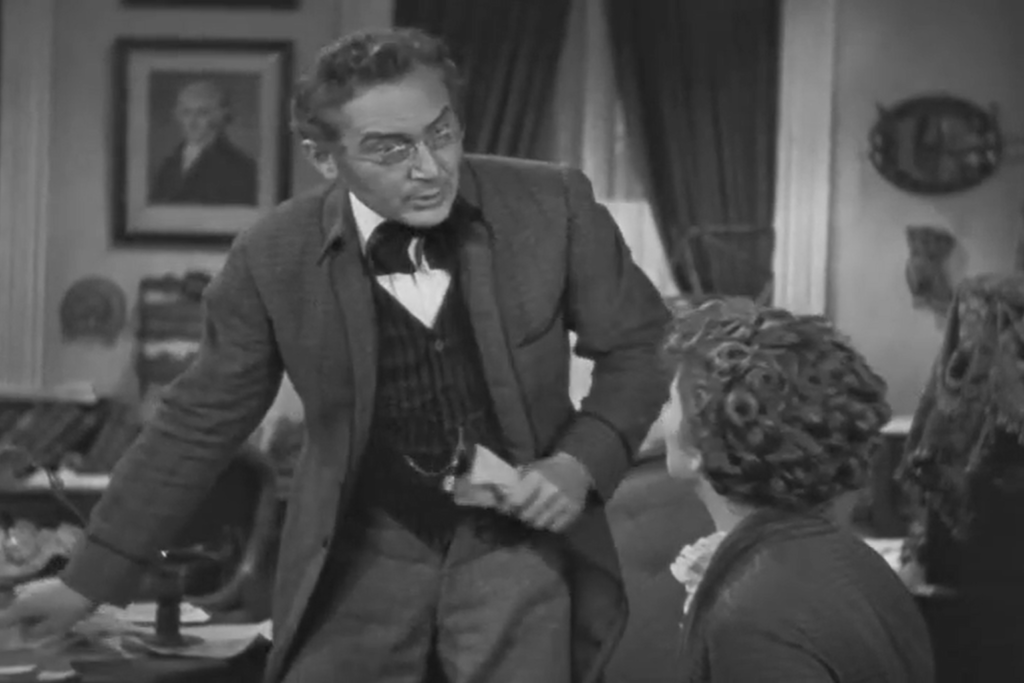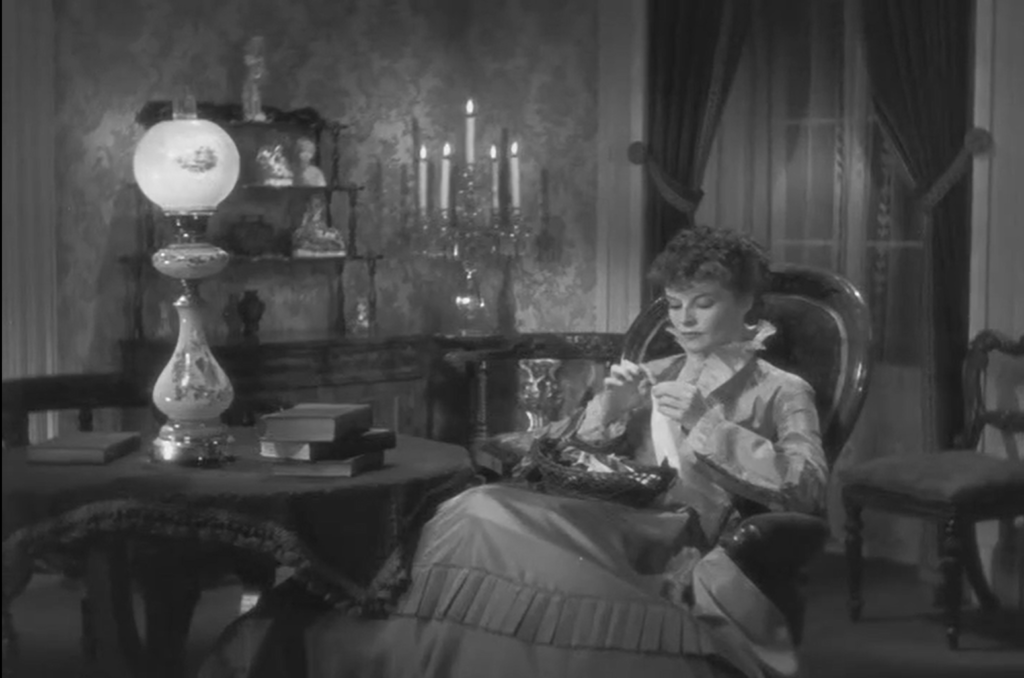|
Genres, Themes, Actors, and Directors:
- Cross-Class Romance
- Fred MacMurray Films
- George Stevens Films
- Katharine Hepburn Films
- Small Town America
- Social Climbers
Response to Peary’s Review:
Peary writes that “Katharine Hepburn had one of her greatest successes playing the young heroine of Booth Tarkington’s Pulitzer Prize-winning novel” about a “smart, imaginative, energetic, yet dissatisfied small-town girl” who “covets being on equal social footing with her richer acquaintances” and “is so obsessed with improving her social standing that she assumes an affected attitude whenever she leaves her house”. Peary argues that “we’d dislike [Hepburn’s Alice] except that we admire her love for and loyalty to [her family members], despite their constantly letting her down and causing her grief”; and he points out that “we understand her desperate need to escape her sad home life”. He posits that women may “like this film better than men because they can relate to Alice blowing it in public, in front of an attractive man, by trying too hard, talking too much, and smiling and laughing in an attempt to conceal… nervousness and embarrassment”, but he adds that he personally finds “it too painful to watch”.
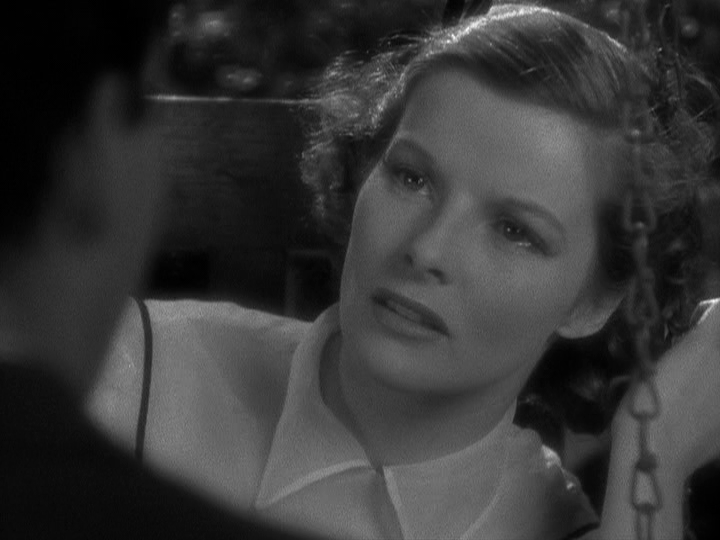
Speaking as a female viewer, I can firmly attest that I don’t find the film any less disturbing than Peary; indeed, it’s nearly as depressing as Hepburn’s notorious downer of a debut film, A Bill of Divorcement (1932). I’m ultimately most in agreement with the assessment provided by DVD Savant, who notes that Alice Adams is “beautifully put together… but raises a number of issues that can’t be easily dismissed” — most specifically the puzzling nature of MacMurray’s attraction to Hepburn. Sure, she’s pretty, but he’s supposedly engaged to his wealthy (and equally pretty) cousin — so what in the world is he doing pursuing Hepburn? We learn absolutely nothing about him — he functions purely as a projection of Hepburn’s fantasies; while it’s clear as day that she’s putting him on, he simply grins at her like a vacuous dolt.
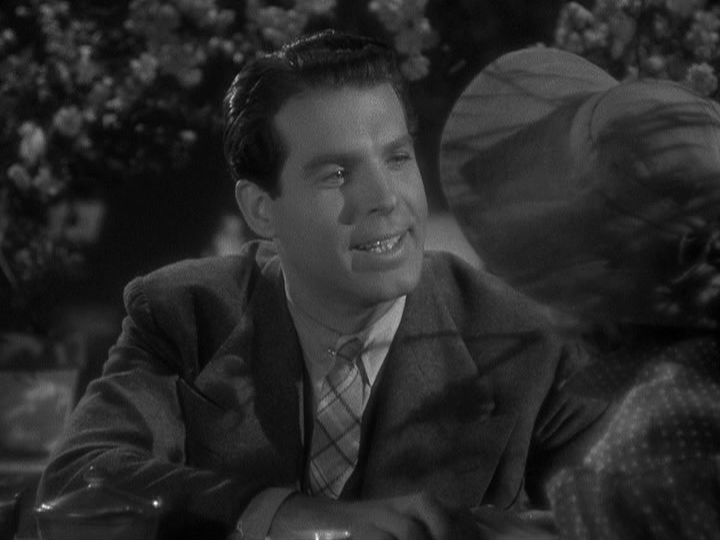
Also frustrating is the film’s tendency to shift in tone between poignant social drama and comedy; meanwhile, the utterly unrealistic denouement between Stone and Grapewin — as well as the obviously tacked-on happy ending (deviating from the original novel) — leave one feeling somewhat cheated (though Peary himself claims to “find [the ending] a relief after watching Alice suffer”).
With that said, the film has much to recommend it — beginning with Hepburn’s passionately committed, nuanced portrayal as Alice. In his Alternate Oscars, Peary names Hepburn Best Actress of the Year for her work here, and it’s hard to argue with his choice. Although she’s an infuriating protagonist to sympathize with — not to mention frustratingly variable (one moment painfully awkward, the next coyly flirtatious) — Hepburn nonetheless brings her to achingly vulnerable life. Meanwhile, the supporting cast (consisting of many little-known faces) is excellent all around — most notably circus performer Fred Stone as Alice’s sad sack father; Frank Albertson as her wastrel brother (who perfectly embodies the cynical antithesis of Alice’s socially conscientious desperation); and droll Hattie McDaniel (in a “scene-stealing performance”) as Malena.
Redeeming Qualities and Moments:
- Katharine Hepburn as Alice Adams
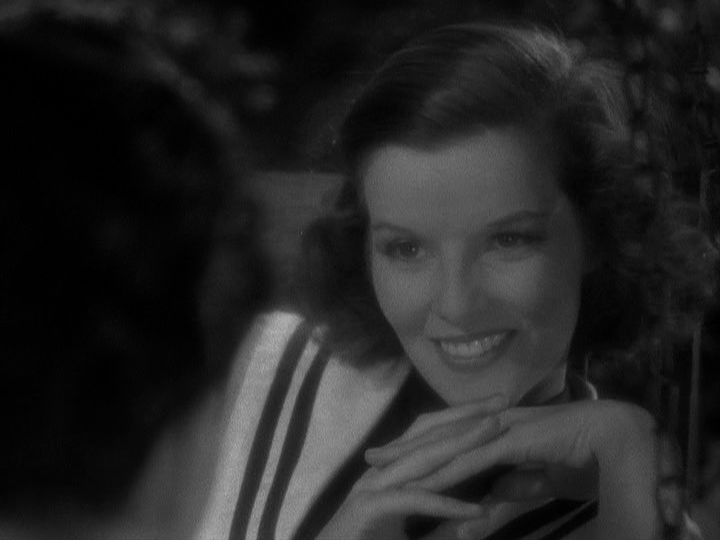
- Fred Stone as Virgil Adams
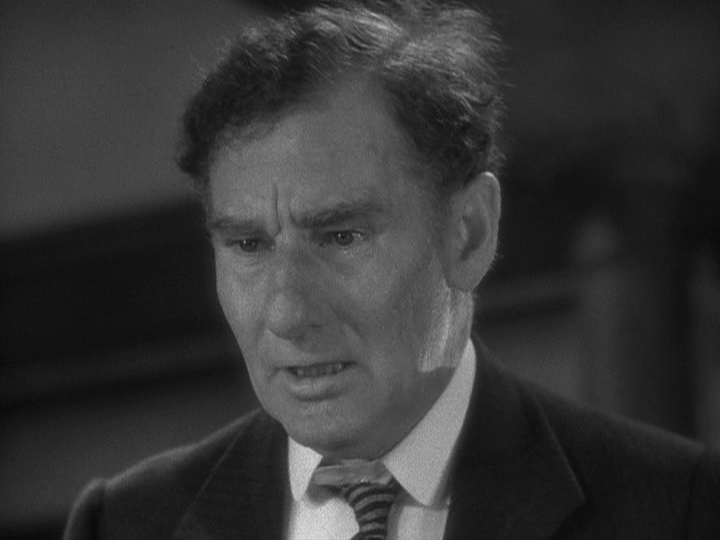
- Frank Albertson as Walter Adams
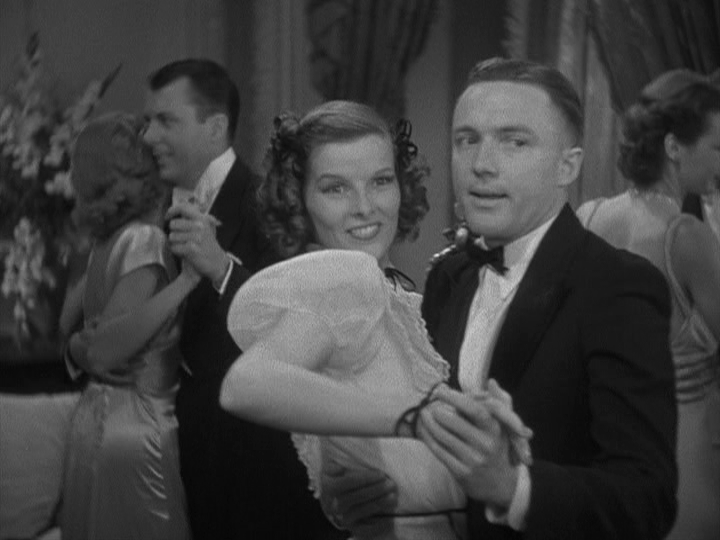
- Hattie McDaniel as Malena
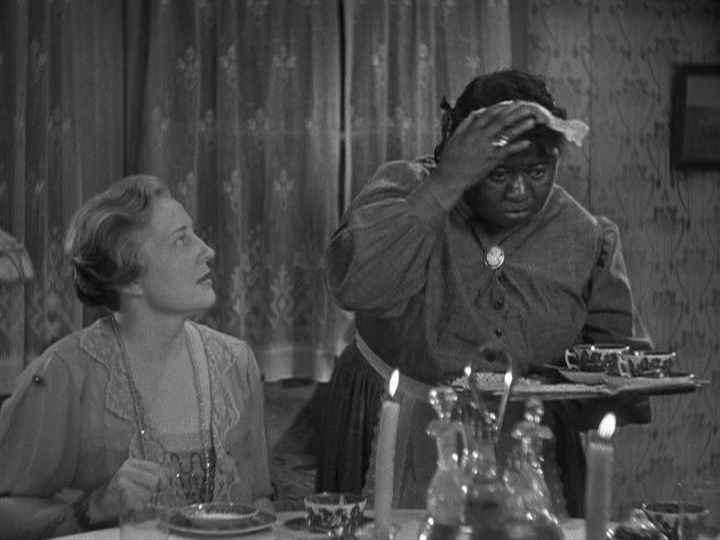
- Charley Grapewin as Mr. Lamb
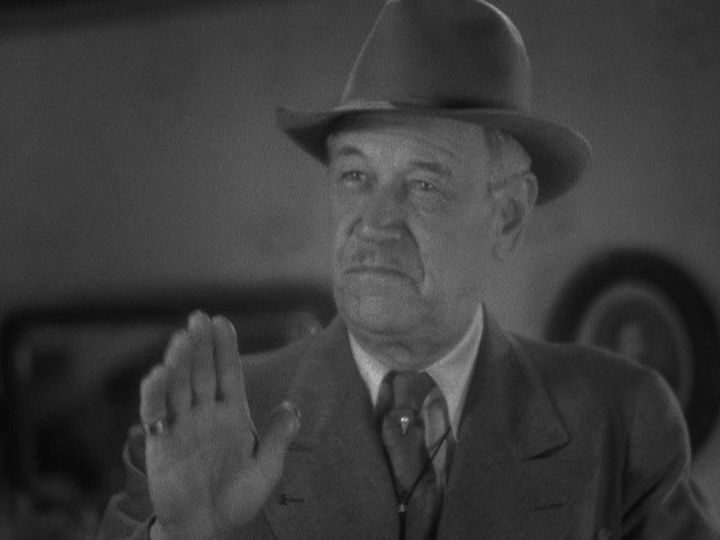
- Luminous cinematography by Robert De Grasse

Must See?
Yes, once, for Hepburn’s Oscar-nominated performance.
Categories
- Noteworthy Performance(s)
- Oscar Winner or Nominee
Links:
|
